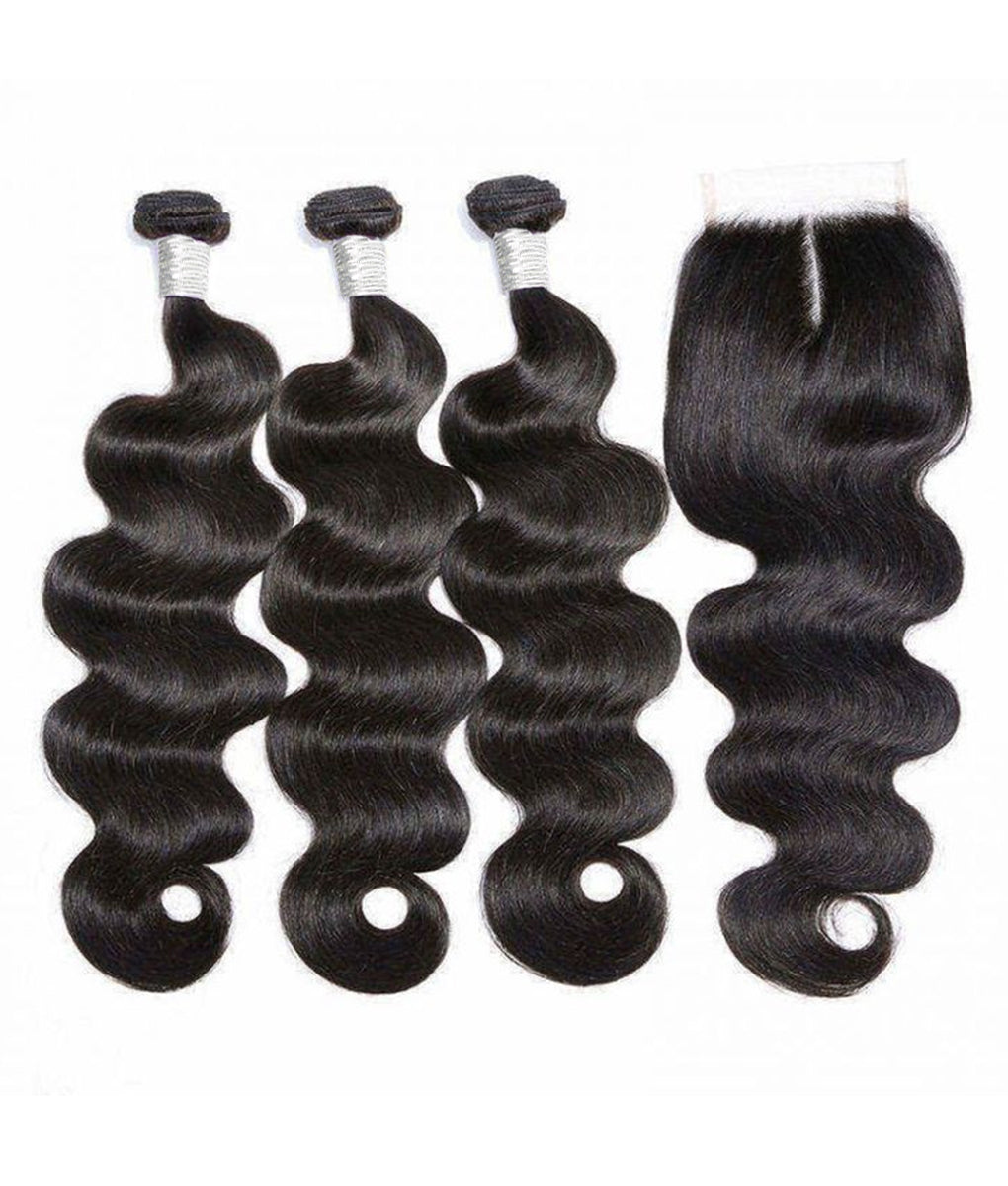Over the ages, hairstylists have been using plucked human hair wigs to achieve natural hair look for their clients. In fact, it is still among the leading choices of wigs today and widely used by masses.
Among the plethora of options available, one of the most popular is the pre-plucked lace wig, which is well-known for achieving a natural look. Most pre-plucked lace wigs have thin hairlines, giving the impression of your natural hairline.
WHY PLUCKING?
Pre-plucked wigs let you achieve a natural-looking hairline. In a plucked wig, the density on the top is lower, as is the case with real hair. Hair of unequal length always tends to grow around a person’s hairline, which is a sign of natural hair growth.
Thus, to get a completely realistic look, the hairpiece or the wig should also be plucked to give that same impression and create a flawless hairline. Pre-plucked wigs do not have this problem.
However, for a wig that is not pre-plucked, you have to perform plucking on the wig manually. How?
In this article, we are explaining how you can pluck a lace wig by yourself.
HOW CAN YOU PLUCK A LACE WIG BY YOURSELF?
If you do not have the pre-plucked wig, the following are some simple customization steps that can help you achieve your desired natural look.
Things You’ll need:
A lunas cap which comes with adjustable straps and combs, A mannequin, canvas hair, Mousse, coconut oil.
Step 1 (Optional):
This step is completely optional and we leave it on your preference. It is about how to bleach the knots to make them invisible, so the wigs will look more natural. To start with, remove the comb that’s in the center. This process will help the hair to lay flat. Bleach the knots that are the little dots at the base of the cap, where the hair is attached. Take two scoops of bleach powder, a 30-40 developer according to preference. The preferred consistency of the developer is thick, as it should not seep into the hair. Make sure you delicately apply the above concoction to the hair as not to apply too much pressure to let the bleach sink into the hair.
Step 2 (Optional):
To get the desired result from step 1, allow the bleach to sit for at least 30 to 45 minutes. After that, proceed to shampoo the area of the cap where the knot is bleached. Let it sit for 3 to 4 minutes before rinsing.
Please note that: Bleaching the hair knots can enhance the natural-looking of the wig, but we highly recommend you to ask an expert for help or apply some foundation inside the lace instead of bleaching them. Over bleaching can cause crazy hair loss.
Step 3:
This step is where the actual process of plucking begins. It involves placing the hair on the mannequin and starting customizing the hairline. If the wig is pre-plucked, you needn't to do more plucking, but if you don't like it, be sure to cut off the so-called “baby” hair before proceeding.
Please take a little bit of a mousse and start applying it around the hairline. Using a curling wand to do this will help the hair to push back. The Mousse will help the hair appear a little bit tacky, which makes it easier to tweeze.
Step 4:
Be sure to dry the hair after completing step 3. Drying makes it easier to see how the hairline looks at this point. Apply a little bit of coconut oil to the hair. Get a pair of the best tweezers you have available as the quality of tweezers has a direct effect on the output. Begin at the front of the hairline and start tweezing to remove any knots of hair that did not breach properly. Separate the hair and go back into the hairline to begin tweezing. Tweezing only the front does not remove any extra hair that may add to the bulk, and the final look would be compromised. Be sure to tweeze carefully and not concentrate on any one area for a long time, as excess tweezing can lead to bald spots.
Step 5:
Proceed to section out some more hair. This time pluck some hair off the sections, which are less thin than the other parts. It creates an ombre/gradation effect with the hairline. The frontals start to look more natural.
Step 6:
After finishing the creation of the natural hairline, recreate some baby hair, which will look more natural than the ones that came with the wig. This will make the hairline look very natural and your wig will be ready to wear.
When you don’t have a tweezer: As much as we endorse having a good quality tweezer with you, but, in situations, when you don’t have one, use your long nails to pluck the hair. Be careful, though.
When you don’t have a mannequin: For some people, it may be hard, but it really is not. When you don’t have a mannequin available, pluck your wig directly on your head. The way to do it is to hold your lace with a tight grip, so you don’t over-pluck. For some people, it is a preferred way to do it because, with a wig on your head, you exactly know which direction you want your hairline to be.
HOW TO PLUCK A LACE CLOSURE OR A LACE FRONTAL, NOT ON A WIG?
A lace frontal is similar to a lace closure, used for mimicking one’s entire front hairline. It is usually 13 inches wide and 4 to 6 inches deep whereas, lace closures are in a square or rectangular shape. It has completely changed the weave game as a person does not have to worry about putting lace closure behind your hairline. Following some simple steps will help you effectively pluck the lace frontal.
Step 1:
Take a snapshot of your existing hairline tied to a ponytail, to use them later on as your guide. Lay the lace frontal against the mannequin head to secure it. Pull the lace frontal into a ponytail and compare it with your hairline.
Step 2:
Create a thin hairline parting according to the photos. Be sure not to make the parting too thick and lose too much hair.
Step 3:
Clip away the rest of the hair, after which you should pluck the excess hair. This step can take some time to get the desired results. Once you have the outline of your hairline, it's time to work on achieving a gradual density.
Step 4:
Please section out some hair. The width does not have to be consistent. Start plucking out some hair, the density of which must be thinner.
Step 5:
Proceed to section out some more hair. This time pluck some hair off the sections, which are less thin than the other parts. It creates an ombre/gradation effect with the hairline. The frontals start to look more natural.
Step 6:
The final step involves checking to see if any area of the wig looks denser than the other parts and plucking away the excess hair. Follow this step to ensure that the final output remains as natural and authentic when a person wears it. You can use a mannequin to see how the hairline has formed, before putting the wig on.
CONCLUSION
By following the above steps, you can achieve the most natural-looking lace frontal that you want. Most commercial wigs come pre-styled or pre-plucked, which still may not be suitable for you. For beginners, following the above steps would help them pluck a wig by themselves in a safe, yet stylish manner.







